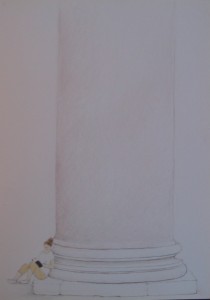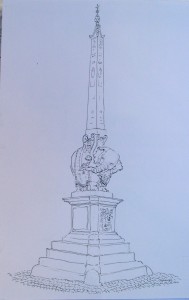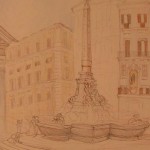 Last summer one of our reading groups decided to read David Foster Wallace’s Infinite Jest, which we abandoned after much fretting and conversation. It was just too heavy for the lighter fare most smart women look for in their summer selections. Plus, any book with 96 pages of footnotes requires the kind of dedication few of us have at any time of year.
Last summer one of our reading groups decided to read David Foster Wallace’s Infinite Jest, which we abandoned after much fretting and conversation. It was just too heavy for the lighter fare most smart women look for in their summer selections. Plus, any book with 96 pages of footnotes requires the kind of dedication few of us have at any time of year.
While Hilary Mantel’s Wolf Hall couldn’t be more different from Infinite Jest, it is a real slog. The historical novel, to its credit, opens with flair and drama as the reader witnesses the brutal beating a young Thomas Cromwell endures from his father: “So now get up!” Walter is roaring down at him, working out where to kick him next. He lifts his head an inch or two, and moves forward, on his belly, trying to do it without exposing his hands, on which Walter enjoys stamping. “What are you, an eel?” His parent asks. He trots backward, gathers pace, and aims another kick.”
Well, it’s pretty sad when the highlight of a book comes on page 1. Even though Thomas grieves when his beloved wife and two daughters die during one of England’s summer plagues, the reader feels no pain. The narration is bogged down by detail, fact, and piles of names. Many of the characters have the same name (Thomas, Anne, Henry, Mary, Jane) and several have titles which Mantel uses interchangeably with his or her given name. This makes it nearly impossible to know who we are reading about without constantly flipping back to the five pages where she lists the ‘cast of characters’ followed by the family trees of the Tudors and the Yorks. Any time the reader gets some momentum going, the narration shifts and some confusion arises.
The novel is centered on the rise of Cromwell from son of a blacksmith to chief minister to Henry VIII, but several characters seem to compete for the main role. At times it is hard to know whether the focus is on the Archbishop of York (also known as the Cardinal and Wolsey), Henry VIII, or Anne Boylen. Midway through the 600 page tome some clarity arises, but by then the reader is simply worn out.
Summer reading should enhance our knowledge of the world and expose us to new ideas, thoughts and experiences. But, we don’t need to suffer to achieve the growth. As Richard Ford says, “I put down most books, unfinished. Most books aren’t very good, and there’s no reason they should be.” Not to say that Wolf Hall isn’t a good book. It did win the 2009 Man Booker Prize and the National Book Critics Circle Award for Fiction. It has much to recommend it, especially if you love British history. But, as a compelling narrative you can really sink your teeth into, Wolf Hall doesn’t cut it.
If you have read Wolf Hall and want to share your point of view, please provide a comment.

